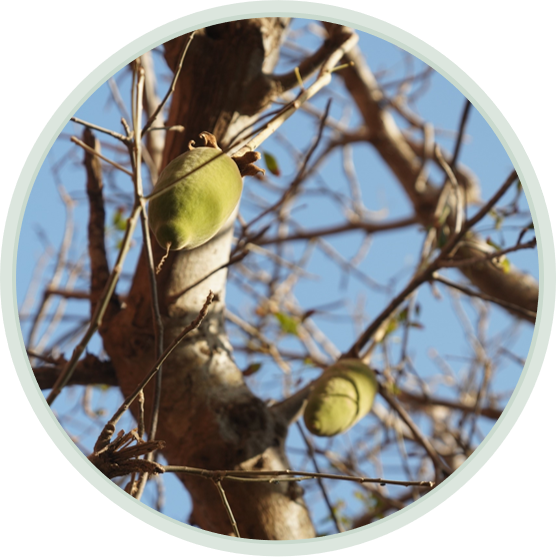Preserving nature, promoting new varieties

Interview with Prof. Dr. Romain Glèlè Kakaï, Chairman of the African-German Network of Excellence in Science (AGNES)
Making research grants available for young, talented scientists across Sub-Saharan Africa. That’s what motivates Prof. Dr. Romain Glèlè Kakaï on a daily basis. The experienced professor from Benin is also the Chairman of the African-German Network of Excellence in Science (AGNES). “Our goal is to retain the many talented scientists we have on the African continent and provide them with the opportunity to become relevant for the communities they work in,” he points out in an interview with Bayer Foundation.
As part of its 2021-2027 cooperation, Bayer Foundation will support AGNES by making 30+ grants available for African PhD students to undertake field studies in Biodiversity Conservation & Sustainable Agriculture. Bayer Foundation’s cooperation with AGNES is part of its larger program in partnership with the Alexander von Humboldt-Foundation.

Prof. Dr. Romain Glèlè Kakaï, Chairman of the African-German Network of Excellence in Science (AGNES)
Interview
Could you tell us a bit more about AGNES?
“Founded in 2011, AGNES facilitates training for junior scientists and scholars in Sub-Saharan Africa. We are also a network organization; we link scholars to the Alexander von Humboldt-Foundation network. The AGNES office is based in Benin, in West Africa. As a Chair, I help to promote academic excellence in research and university education; not only in West Africa, but across Sub-Saharan Africa. We also promote regional academic exchange between African scientists and German researchers. To date, we have supported about 250 grantees from all over Sub-Saharan Africa, of which about 100 are female scientists.
With our grants, we support PhD students and postdocs to tackle development issues through scientific research. The students cover a large number of disciplines. They focus on nature conservation, sustainable agriculture, computer science, mathematics, climate change; It’s really broad. One element many students have in common is that they work on research projects that are beneficial to the communities they are rooted in.”
What is your own personal background and how did you get involved with AGNES?
“Besides being the Chairman for AGNES, I am also a Professor of Biostatistics and forest estimations and Head of the Laboratoire de Biomathématiques et d’Estimations Forestières of the Faculty of Agronomic Sciences University of Abomey-Calavi, Benin. My current research focuses on infectious disease modeling and mangroves ecosystems ecology and restoration.
I became involved with the Alexander von Humboldt-Foundation back in 2007. I applied for the Humboldt postdoctoral fellowship program to do my postdoc in Germany. As a result, I spent 6 months at the Freiburg University in Germany. I really appreciated my time there, it was all very exciting for me. Freiburg is such a nice city and I made many friends there. What I found impressive was that members from the different departments would come together on a weekly basis to discuss work planning. Also, during coffee breaks, people would use that time to exchange on various things in an informal way. I took these lessons back with me to Benin.”
As part of its 2021-2027 cooperation, AGNES and Bayer Foundation will make grants available for PhD students to undertake field studies in Biodiversity Conservation & Sustainable Agriculture in sub-Saharan Africa. Why is this needed?
“Climate change is affecting crop yields negatively everywhere on the continent. Farmers continue to need more land to grow crops, leading to deforestation. As a result, we are losing our biodiversity in a fast manner. At the same time, the population is growing rapidly, so feeding the generations to come will be a huge challenge.
Part of the solution is to make sure that biodiversity conservation and sustainable agriculture go hand in hand. There are still many unknown fruit and vegetable species growing in the wild. The genetics of these plants (sorghum, millet, wild pepper, etc.) and trees (black plum, baobab, etc.) should be studied better. We need to find answers to the following questions; which of these varieties are drought-resistant? How can we produce these varieties on a larger scale? And how do we transform products from these varieties in an efficient way using new knowledge in the field of food technology. And perhaps most importantly; how do we communicate the ecological and health benefits to the communities, so that they can help preserve them better? These are only a few of the research questions that are currently being tackled by the young scientists we support.”
What is the role you would like AGNES to play in the future?
“Most of the young, talented scholars will leave the continent at some point or another, because they do not find rewarding jobs at the universities and research centers in their countries. I believe that in order to create meaningful jobs in science, we need to make sure that the role of science becomes recognized at the highest levels. One way of establishing this is by actively sharing our findings with the decision-makers in our countries. My hope is that AGNES becomes a lobby organization that has the power to influence politicians in every country in Sub-Saharan Africa. We can do this by making sure that our findings are shared, recognized and used at the highest levels in our society. This will encourage decision-makers to make policies that are based on science.”
Interview: Christien van den Brink
Photo Credits: Christien van den Brink (header) and AGNES (portrait)



